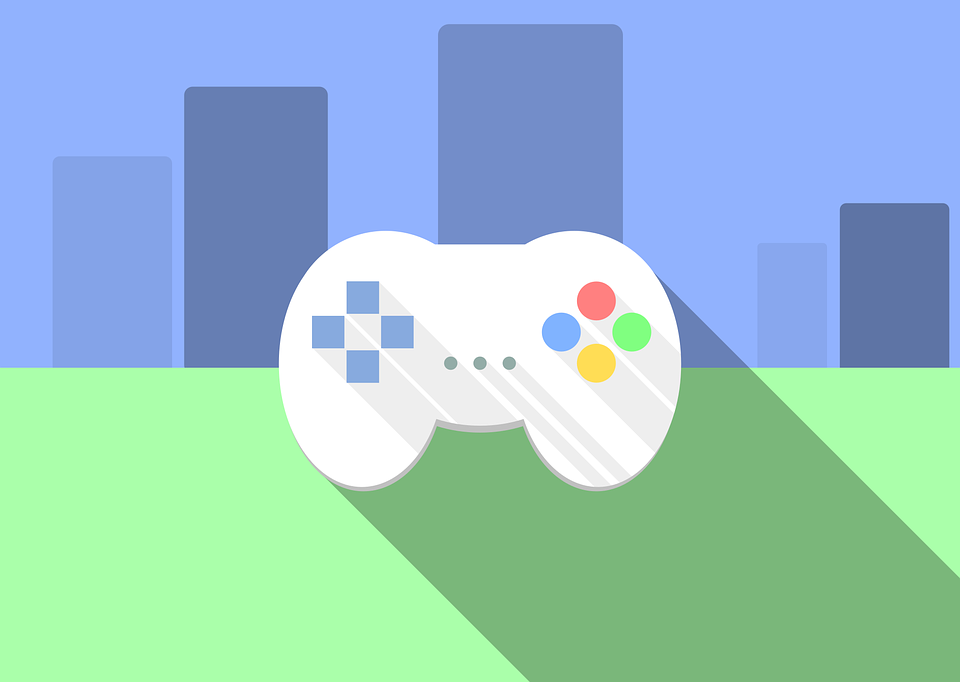How to choose the best game engine in 2019?

Which game engine should I download? Unity 3D, Unreal Engine Editor, Game Maker Studio, RPG Maker, Godot Engine or Construct2?
But in the end, the question would be more like: how to choose the best game engine to create your own games?
From the beginning, we want to use exactly the same tool as the pros, the tool that will immediately propel us to the top! It is quite human to think in this way. However, this is not necessarily the right way to proceed when starting video game development.
Hello, I’m Benoît from the French blog VideoGameCreation. It’s a blog about video game creation for all developers: beginners, students and pros. I’m a professional game developer since 2006 and I already create many cool games.
Here is the list of the six most important criteria for choosing the game engine. But before…
What is a video game development engine?
In summary, a game engine is a third-party software that combines several features compiled in a single program. For example, it can integrate: a 3D engine, a 2D engine, a UI engine, a physics engine, an animation engine, an asset manager, a script editor, a scene manager, export to different platforms, etc.
The goal is to use all these existing tools to save development time. And God knows that the creation of all these engines is time-consuming and costs a lot of money!
In short, the engine is a kind of Swiss Army knife for the creation of video games.
The Unreal Engine game engine uses “blue print”.
Here is the list of the six most important criteria for choosing the game engine.
Criterion #1: The past and future of the game engine
First of all, you must always look at where the program comes from and to whom it belongs.
The goal is not to get stuck after years of development because of its technology or editorial line.
The questions to ask yourself:
- Who developed it?
- How long has this game engine been around?
- Has it ever been bought back during its existence?
- Will it be bought back soon?
- Is it often updated?
- Does it evolve according to trends?
An example: Virtools was a very promising software, because it included: a 3D engine, an export system on several platforms, a Visual Scripting editor (Drag and Drop), a physics engine, a multiplayer engine, etc. But it was bought in 2005 by Dassault Systèmes, the fighter aircraft manufacturer. The new buyer’s ambitions were not to develop a tool dedicated to video game creation.
Criterion #2: The game engine game library
Then, it is interesting to take a look at the “Hall of Fame” of this software. In general, engines promote technically successful games for self-promotion purposes. These video games already give us a very good overview of the rendering engine. But this can give us indications of strengths and weaknesses. For example, some engines are well suited to manage Pixel Art and others 3D.
The questions to ask yourself:
- How many hits have been created with this game engine?
- But how long ago?
- On which platforms?
- Is it adapted to my game (gameplay, graphics engine, technique)?
In 2013, when Unity’s native 2D graphics engine was released, I was convinced thanks to 2D game demos on different platforms.
Criterion #3: The engine community
The other developers already know their tool. They are the perfect people to talk about it and give their opinion. Do not hesitate to discuss with them, they do not bite. Well, not all of them!
Trolls for many of these programs can be found in many forums. But it means there’s a choice and they all have arguments.
Of course, the larger the community, the more people there are who can help you, fix problems and participate in discussions. Thanks to this community, plug-ins can easily be found on GitHub or on the Marketplace. Ditto for graphic assets, 3D models, animations, etc.
The questions to ask yourself:
- Is there a large community In your language?
- Are there any self-help forums?
- Is there a presence on social networks?
- Are there any tutorials? In your language?
- Are there Marketplaces?
99% of the problems we encounter are already reported on the forums. Just enter the right keywords into Google ????.
I also sometimes say to myself: “There is a feature missing that would simplify my development process”. There is a good nine out of ten chances that it is already available on a Marketplace.
Criterion #4: The functionalities of the game engine
Development very quickly becomes a gas factory with all third-party software, editors, programming languages, peripherals, etc. It is always interesting to list all the features of each game engine.
The questions to ask yourself:
- Does this software come with other third-party software?
- Or is everything already incorporated in the game engine? For example: a graphic editor, a sound editor, a script editor, an animation editor, etc.
- If not, what other software do I need?
- What is the programming language used? (C#, Python, Java, Java, JavaScript)
- Can I use this game engine even if I don’t know a programming language?
- Is the price of the software within my means? (Price of the license)
- Does this software use a proprietary language?
- Does the initiation seem intuitive to me?
- Is it easy to deploy my game on the platform(s) I target?
- Is the game engine Open Source?
- Is the game engine resource-intensive?
- Is it cross-platform? (PC, Macintosh, Linux)
Adobe Animate CC (formerly Flash) includes everything you need to develop a video game: graphics editor, animation creator, scene management, script editor, export, except the sound editor. Unfortunately, the”.swf” format is slowly dying.
Criterion #5: According to our needs
Of course, you must have something in your hands that you can handle easily. First, we must identify our needs before installing anything. It is therefore vital to properly target your objectives, resources, skills, team and budget.
There is no need to learn to master a game engine that is too big if you only use 10% of its capabilities. In other words, you are not going to use a flame thrower to light a barbecue.
The questions to ask yourself:
- What are my needs for my game?
- Am I familiar with this programming language?
- If I don’t know this language, can I still “program” without knowing any programming language?
- Is this software also available in your language?
- Is this software well designed to deploy my game on the platform(s) I target?
- Is this software designed for the type of games I produce?
The transition from Flash to Unity was not very long for me. The syntax of the ActionScript 3.0 language is similar to that of C#. I would add that Unity 3D’s mobile export is much more intuitive and faster.
Criterion #6: Be comfortable with the engine
There is nothing like a tool too complex for you to disgust with development, which makes the task difficult for you. This tool will follow us for hundreds of hours.
It is necessary to have fun working on our projects. We have to have as much fun as the players. As independent developers, we have a choice of engines. You have to have a good feeling with your tool, with its interface and its logic. But it takes a little time to get familiar with. Finding intuitive software from the very first steps is an excellent selection criterion.
Hence: increased production efficiency.
The questions to ask yourself:
- Does the interface of my engine seem intuitive to me?
- Can I test it?
- Do I enjoy using it?
- Could I spend several years on this software?
- Is the whole team comfortable with it?
I tested Unity 3D by creating a Flappy Bird clone in a few hours. I quickly understood the logic, methodology, mobile export and physics engine.
Conclusion
Everyone is free to choose their game engine. It is simply necessary to compare the strengths and weaknesses of each tool, and to compare them with one’s own strengths and weaknesses.
A tip: you can always develop a very small project on each different editor to compare them yourself.
In a future article, we will compare the most popular free and paid engines, with or without a programming language: Unity 3D, Unreal Engine, Construct2, Game Maker, etc.
To conclude, I would like to stress the following two points:
- The players don’t care about the game engine you used.
- A game engine is like wine, the best is the one you prefer.
Finally, as long as everything works, that’s the main thing.
For my part, I chose Unity 3D after spending more than eight years on Adobe Flash and three years on XCode. It took me a while to tame this engine, but once you’re in it, everything gets easier. In concrete terms, I simply followed the demands of my customers and market trends.
And you? What are your criteria? Have you already chosen your engine?
If you want to be a better game developer, remember to check out Video Game Creation (French)!





